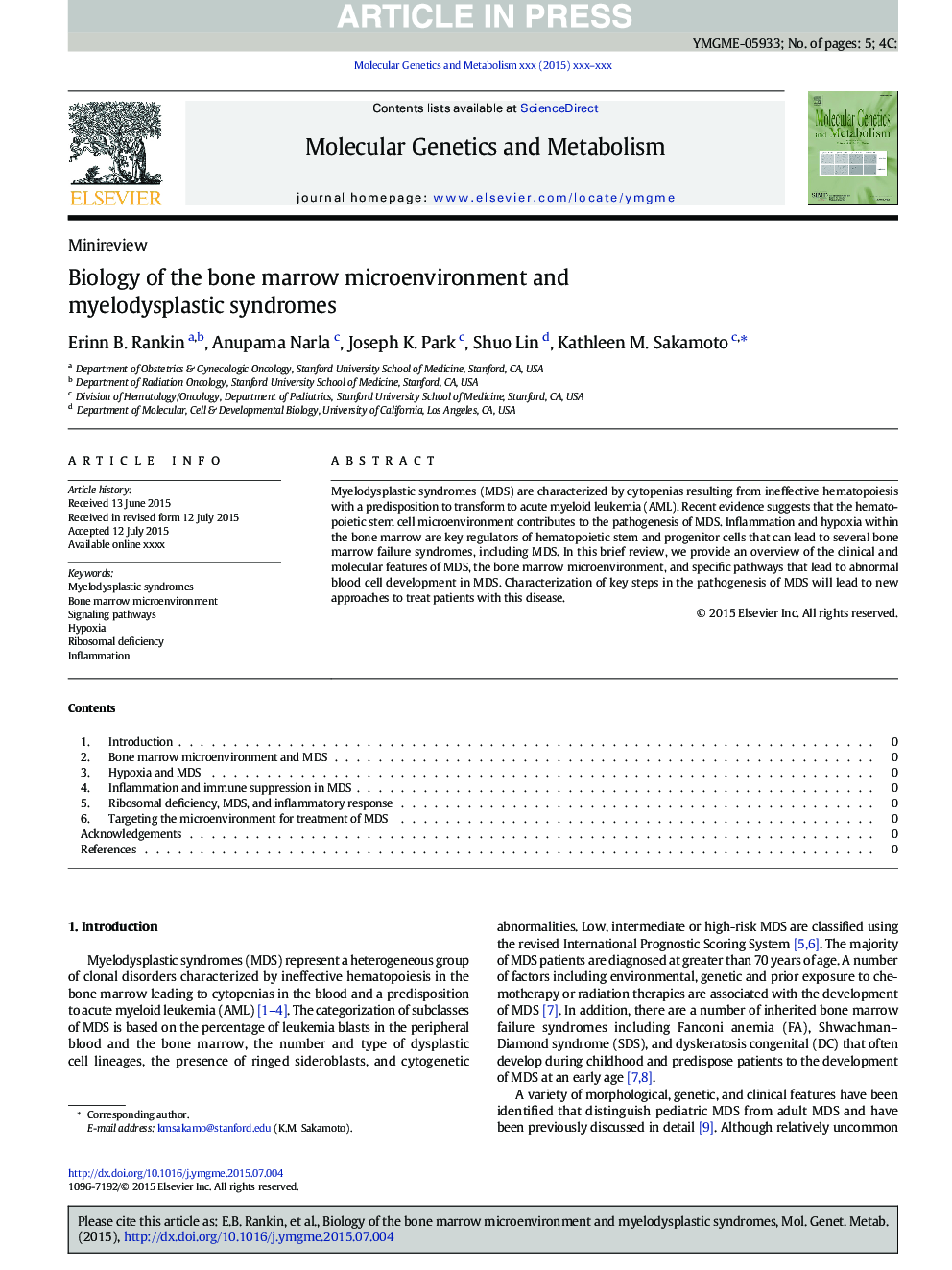| Article ID | Journal | Published Year | Pages | File Type |
|---|---|---|---|---|
| 8343736 | Molecular Genetics and Metabolism | 2015 | 5 Pages |
Abstract
Myelodysplastic syndromes (MDS) are characterized by cytopenias resulting from ineffective hematopoiesis with a predisposition to transform to acute myeloid leukemia (AML). Recent evidence suggests that the hematopoietic stem cell microenvironment contributes to the pathogenesis of MDS. Inflammation and hypoxia within the bone marrow are key regulators of hematopoietic stem and progenitor cells that can lead to several bone marrow failure syndromes, including MDS. In this brief review, we provide an overview of the clinical and molecular features of MDS, the bone marrow microenvironment, and specific pathways that lead to abnormal blood cell development in MDS. Characterization of key steps in the pathogenesis of MDS will lead to new approaches to treat patients with this disease.
Related Topics
Life Sciences
Biochemistry, Genetics and Molecular Biology
Biochemistry
Authors
Erinn B. Rankin, Anupama Narla, Joseph K. Park, Shuo Lin, Kathleen M. Sakamoto,
